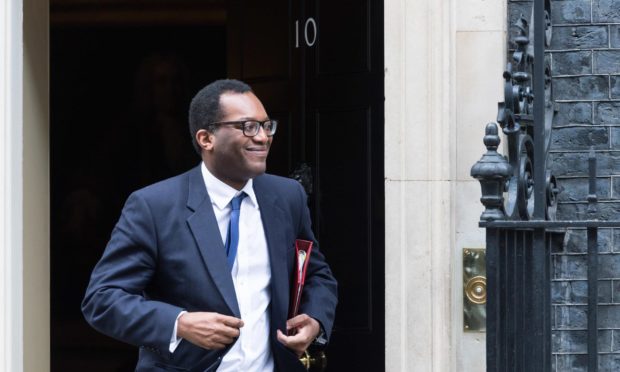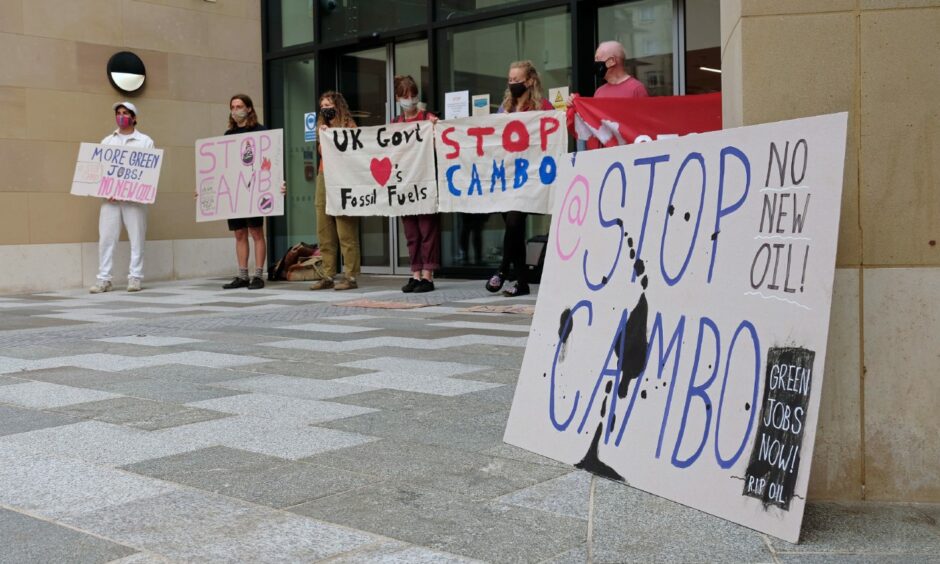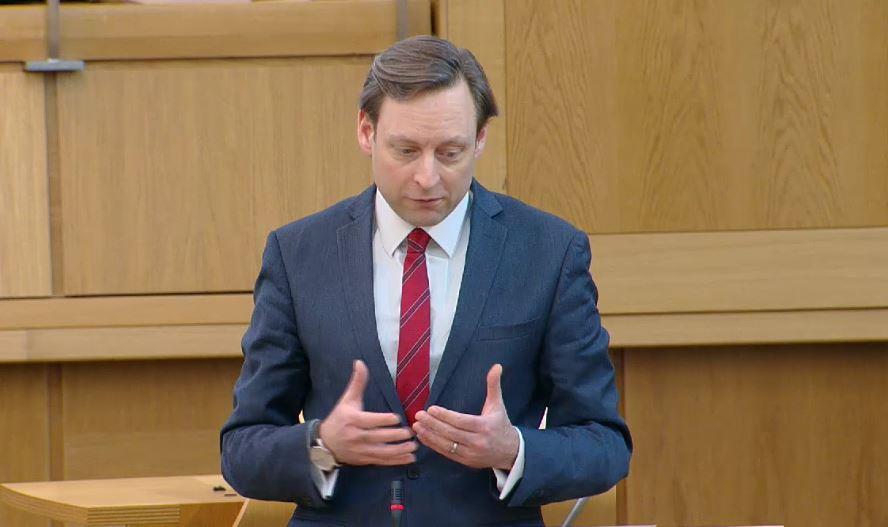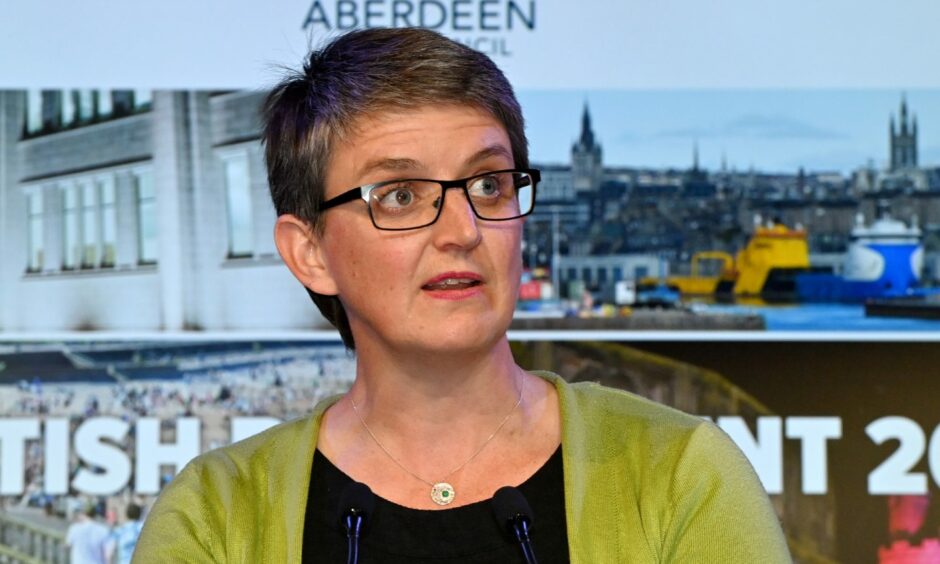The Tory energy secretary was dealing with 100 campaign messages a day as climate activists fought to block the controversial Cambo oil field expansion off Shetland.
Kwasi Kwarteng was on the receiving end of around 20,000 emails between June and December last year, according to figures released to us by his government department.
The scale of the correspondence shows how Cambo became a frontline in the battle over the UK’s response to the climate emergency – before and after the COP26 summit in Glasgow.
The number of communications emerged as First Minister Nicola Sturgeon used a visit to the US to issue a stark warning that a failure to hit summit targets would be “catastrophic”.
And on Monday, COP26 President Alok Sharma visited Glasgow six months on from the city event to warn the window of opportunity to act is “closing fast”.
Why is Cambo controversial?
The Cambo field is thought to contain 800 million barrels of oil. It is still to win final approval from UK Government regulators.
For campaigners, it became a symbol of Britain’s failure to match climate change slogans with the reality of action to cut emissions from fossil fuel.
Supports of the scheme argued abandoning Cambo would increase the country’s need for energy imports.
But opponents won support from Ms Sturgeon’s SNP and Labour, increasing pressure on Conservative ministers to block the project.
Environmental campaign group Greenpeace specifically urged supporters to contact Mr Kwarteng to ask him to rule out UK Government support, even offering an email template on its website.
‘Death blow’
A “death blow” was claimed to have been dealt to the project when oil and gas giant Shell withdrew its backing, leading to a pause in the scheme a few days later in December.
However, Ithaca Energy raised the prospect of pressing ahead with Cambo last month after it agreed a deal to buy Siccar Point, the owner of the oil and gas field, in a deal worth up to £1.1 billion.
Liam Kerr, Scottish Conservative energy spokesman, said the UK minister “profoundly understands” the North Sea.
“Cambo will help retain vital skills as our domestic demand for oil and gas tapers away and more renewables jobs come on stream,” he added.
“A properly managed transition won’t leave us at the mercy of imported energy from Putin’s Russia and other markets with fewer regulations and more than double the carbon footprint.
“Attempts to demonise the North Sea will not solve rising bills, but instead threaten tens of thousands of jobs in the north-east.”
However, Scottish Greens MSP Maggie Chapman said the flood of emails to Mr Kwarteng underlined the level of opposition.
“The number of communications – most of which are from anti-Cambo campaigners – speaks for itself,” the north-east MSP said.
“People want to see climate action. They know that continued expansion of fossil fuel production endangers all of us.”
Greenpeace UK’s oil and gas campaigner Philip Evans said the number of e-mails about Cambo “speaks volumes”.
“People are much more likely to write to complain about something than they are to praise,” he said.
“This isn’t surprising, since Cambo will pour fuel on the climate crisis, and serve only as a cash cow for oil companies – who have reported record profits of unthinkable sums this year – doing nothing to provide UK energy security or financial relief for households, whose energy bills are through the roof.”



